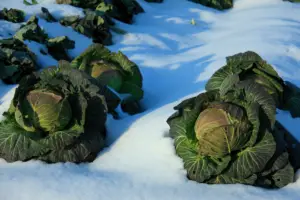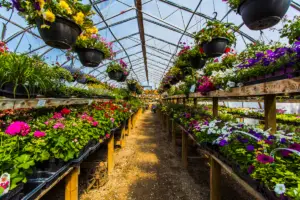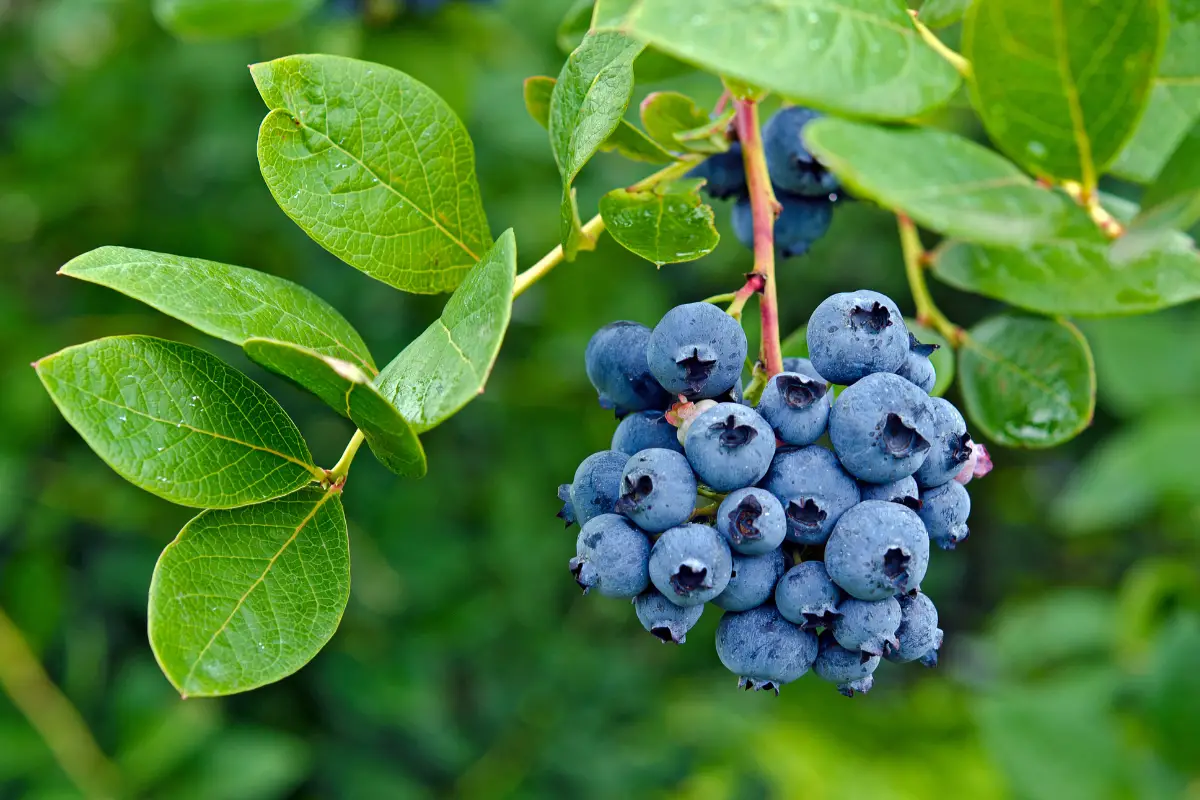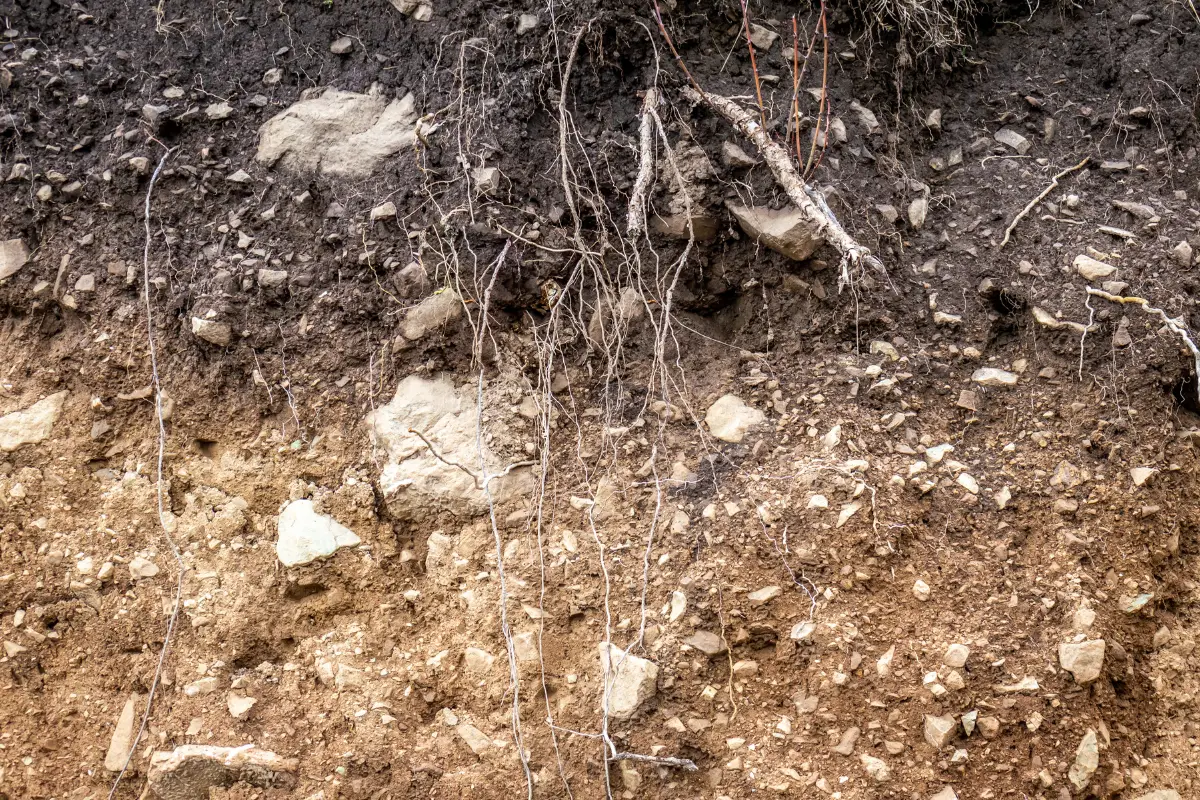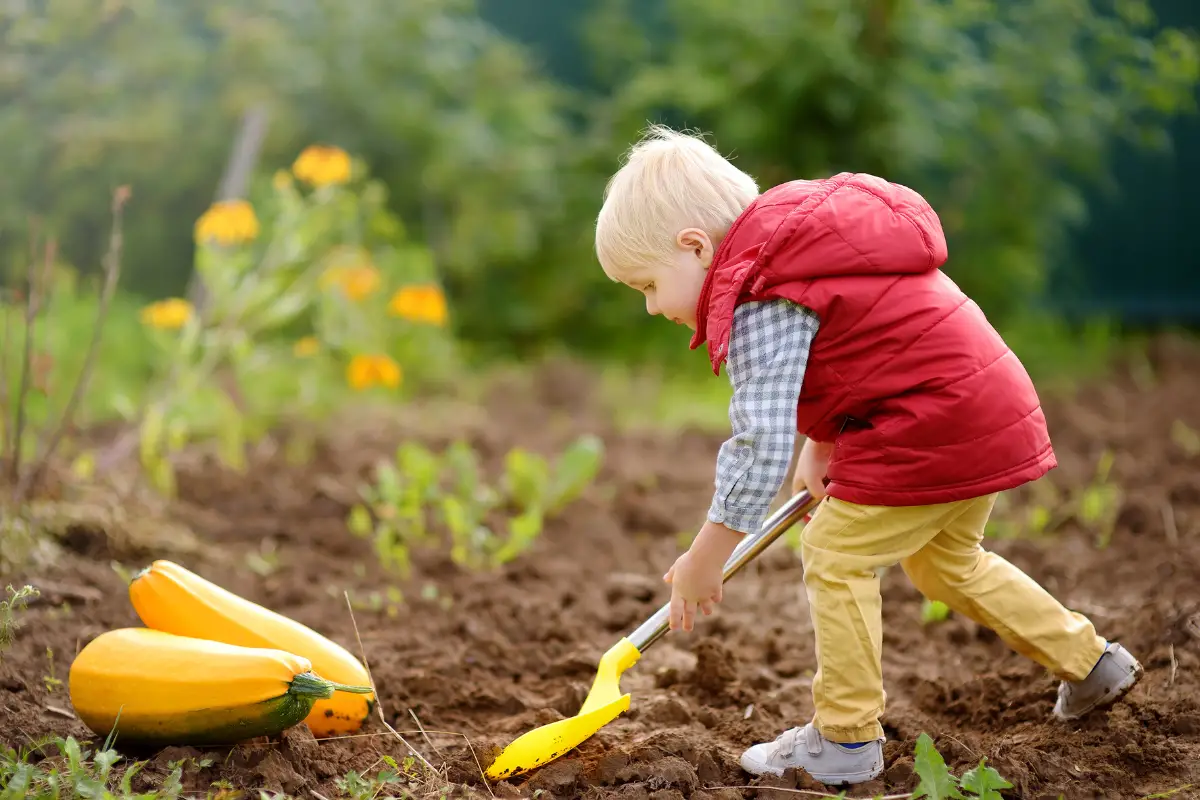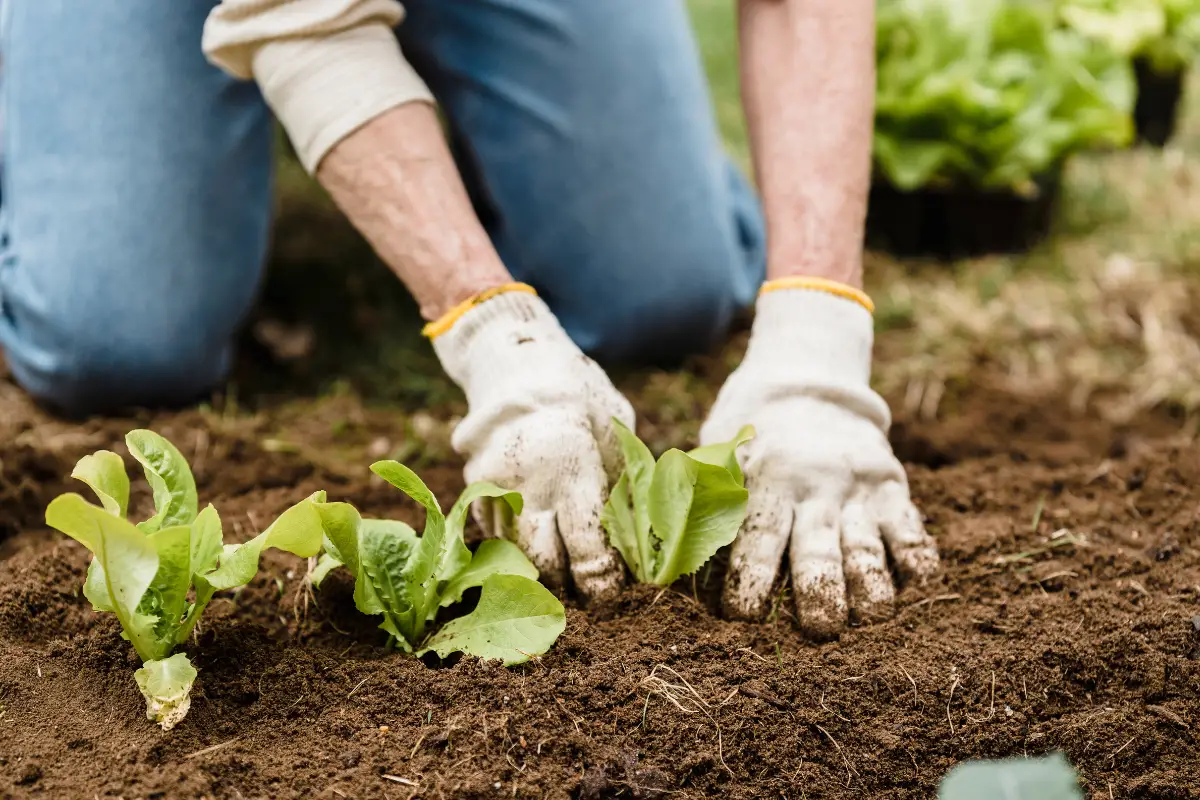Adding coffee grounds to your compost comes with several benefits.
Composting with coffee grounds improves water retention, aeration, and improves drainage.
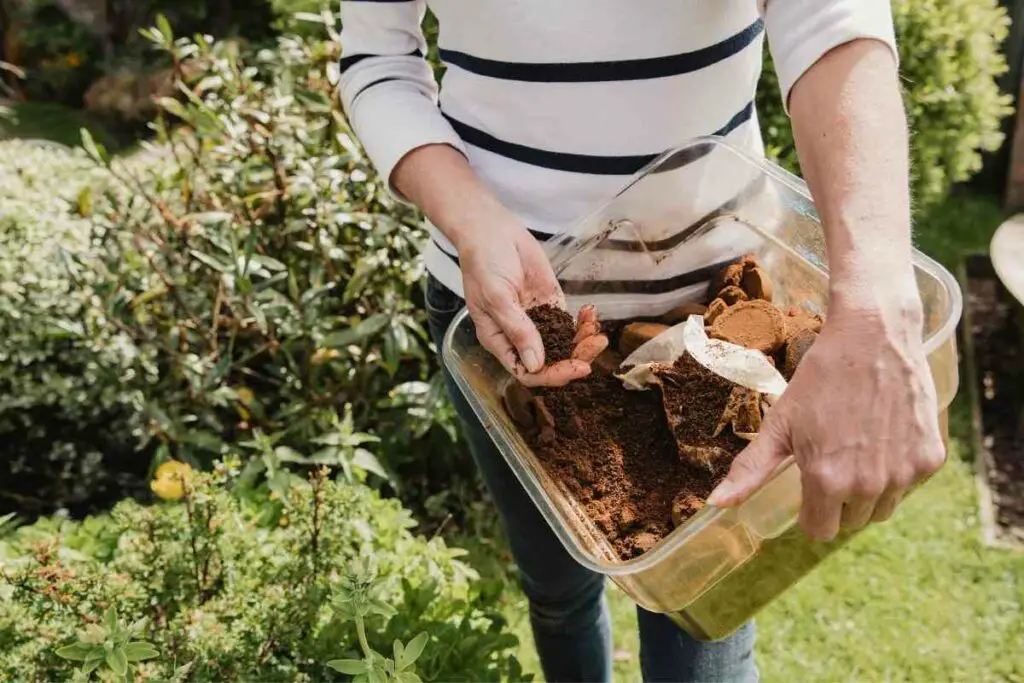
It can also keep away insects like snails and slugs. Plus, coffee grounds can add nitrogen to the soil, which plants love!
Overall – You’ll want to make sure you add your leftover coffee grounds to your compost pile! It works perfectly and comes with many different benefits. It’s easy to add so that you can start today.
Table of Contents
Why Should I Compost Coffee Grounds?
Making compost out of your food scraps is an excellent way to prevent those items from ending up in a landfill.
Plus, coffee grounds can offer several benefits to your plants. You’ll want to compost it, then use it as a fertilizer.
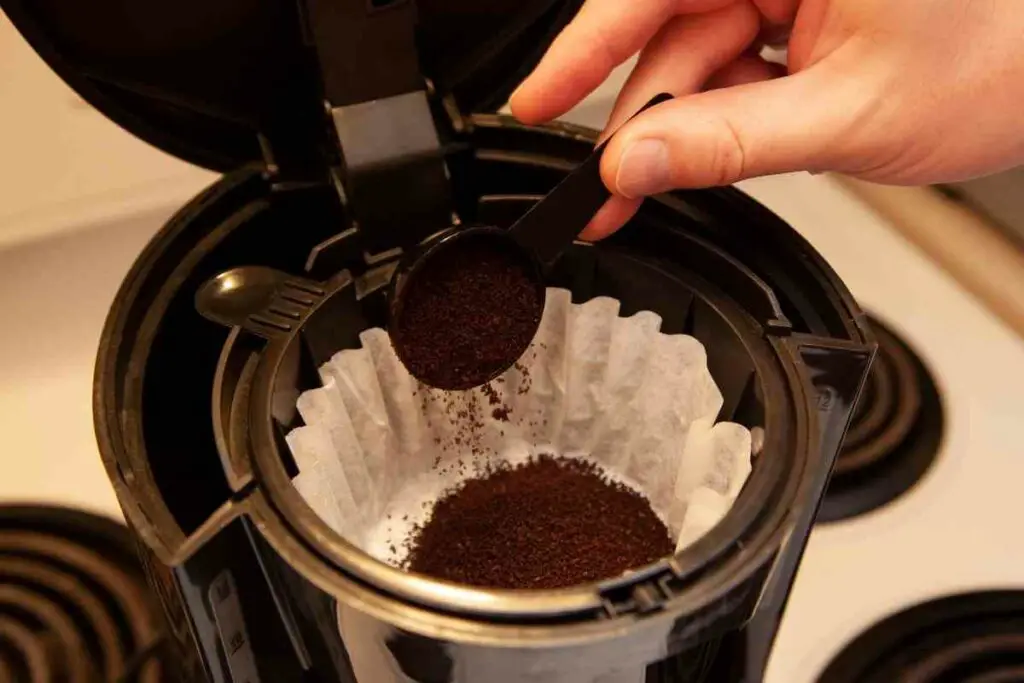
You can compost coffee grounds, but you can also compost the coffee filters!
When you compost, nothing has to go to waste. Coffee grounds also add more nutrients to the soil and improve its quality overall.
Overall, coffee grounds are perfect for making good compost!
They contain high amounts of nitrogen, phosphorus, and potassium- all nutrients that your garden needs to thrive.
Finally, coffee grounds are already very fine and easy to break down in your compost pile.
How Does Composting Coffee Grounds Benefit Plants?
There are many ways that adding coffee grounds to your compost pile can benefit your plants:
- Coffee grounds add more organic matter to the soil, significantly improving water retention, aeration, and drainage properties.
- Plus, used coffee grounds attract earthworms, which are excellent for the garden.
- Next, coffee grounds contain many nutrients that plants love. They contain phosphorus and potassium. Most importantly, they have high amounts of nitrogen.
- Nitrogen is an essential part of your compost pile! It’s a macronutrient that plants need to grow and form crucial proteins and enzymes. Without nitrogen, the plants won’t grow well and may even wilt early.
- Coffee grounds also encourage microorganisms to grow in the soil, making the compost pile heat up. The microorganisms break down the coffee grounds and add more essential nutrients for your plants.
If you also have paper coffee filters, you can add them after tearing them apart for more carbon!
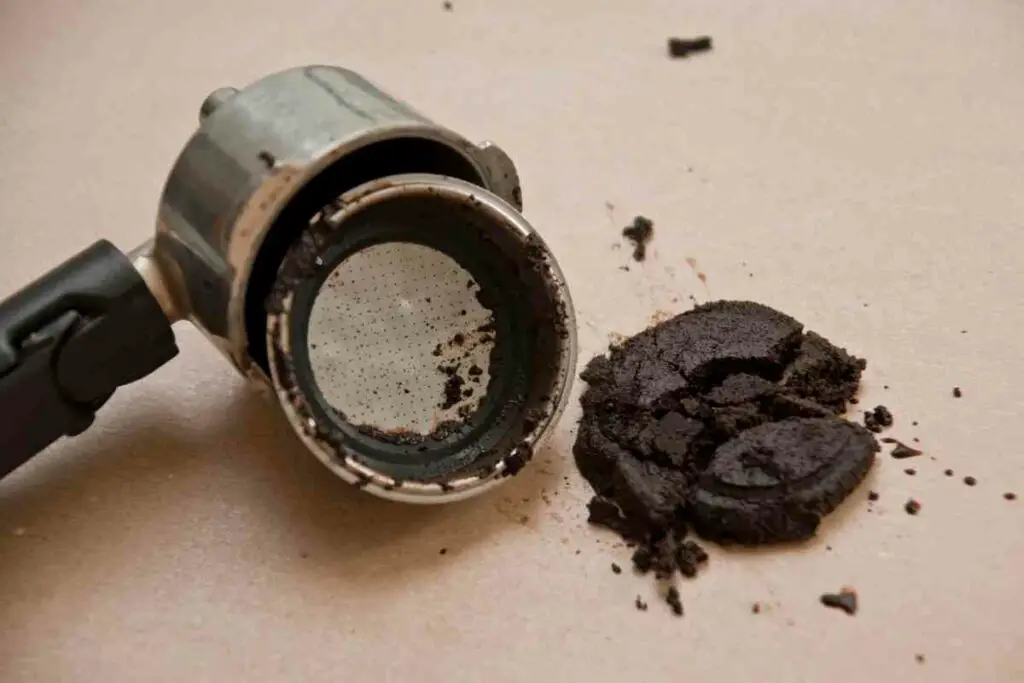
Finally, since adding coffee grounds makes the soil more nutritious for plants, it can also help prevent diseases and pests from overrunning your garden!
In short, there are many benefits to adding your used grounds to compost.
Coffee Grounds and Soil Structure
Since coffee grounds improve soil structure, they make the environment much better for your plants to thrive!
Since it’s well-aerated and well-draining, the roots can easily burrow through the ground without worrying about drowning.
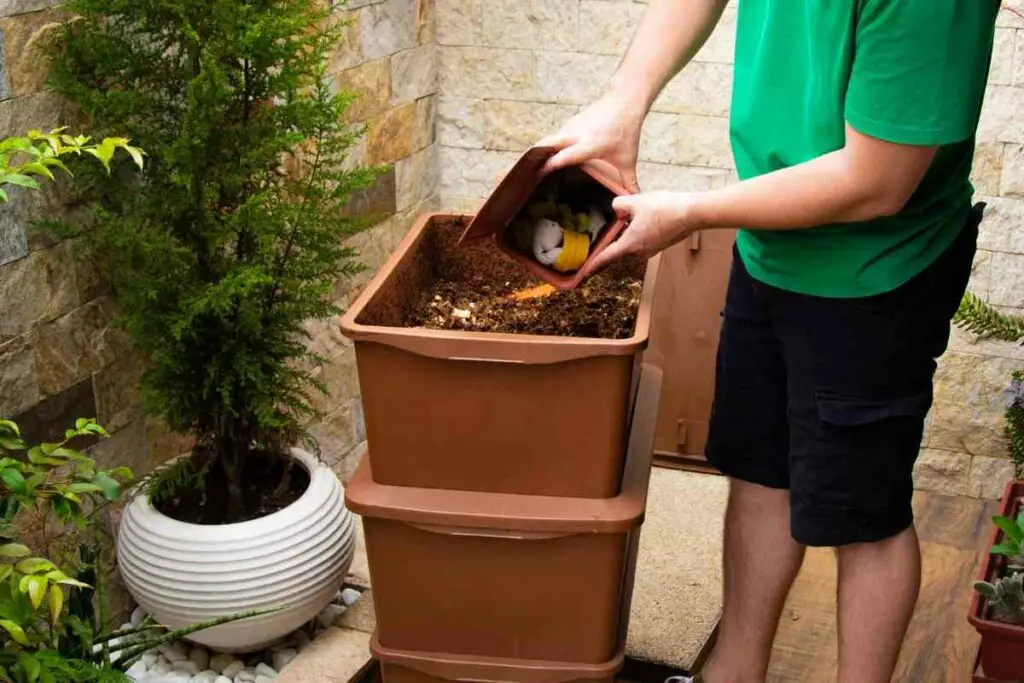
Coffee grounds improve the soil’s tilth, making it easier for the plant to grow there.
The earth has favorable conditions, allowing the seed to grow, the roots to spread quickly, and the crops to produce better food.
If you haven’t had luck with your plants in the past, the soil conditions might be to blame!
You’ll want to try adding some coffee grounds to your compost and see what happens at your next harvest.
Don’t Forget – House plants love it too!
What Plants Like Coffee Grounds?
Many plants appreciate coffee grounds.
Used coffee grounds have an extremely neutral pH level because most of the acid goes into the coffee drink; if you’re growing plants that like more acidic soil, you don’t need to brew the coffee first.
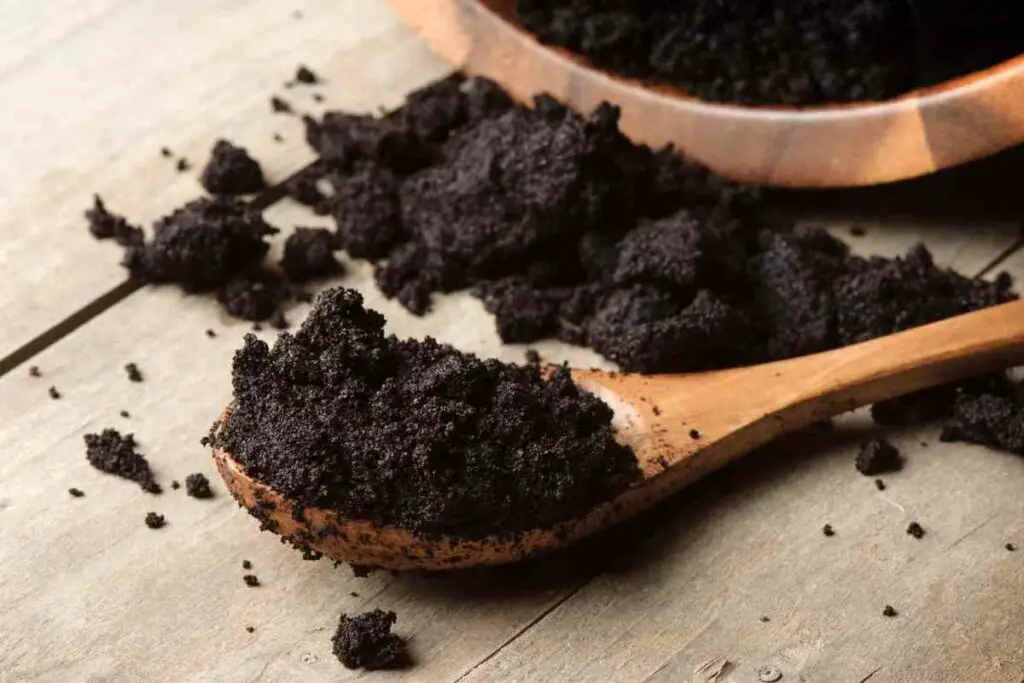
For example, blueberries, radishes, and carrots are all crops that love unused coffee grounds. Flowers such as rhododendrons, azaleas, and hydrangeas also love them!
You’ll want to make sure the plants you have prefer more neutral pH soil for used coffee grounds.
However, since used coffee grounds don’t change much pH-wise, you can use them with just about every type of plant and get great results!
To Summarize: Nearly all plant life can benefit from coffee ground compost. It comes with all the nutrients they need to thrive.
Can You Add Too Many Coffee Grounds to Compost?
You can add too many used coffee grounds to your compost pile.
You don’t want to add it constantly and need to find a good balance. You want to also make sure you’re adding carbon-rich items to the compost.
Otherwise, it will be nearly entirely nitrogen! While plants love nitrogen, they need to have other nutrients in their soil.
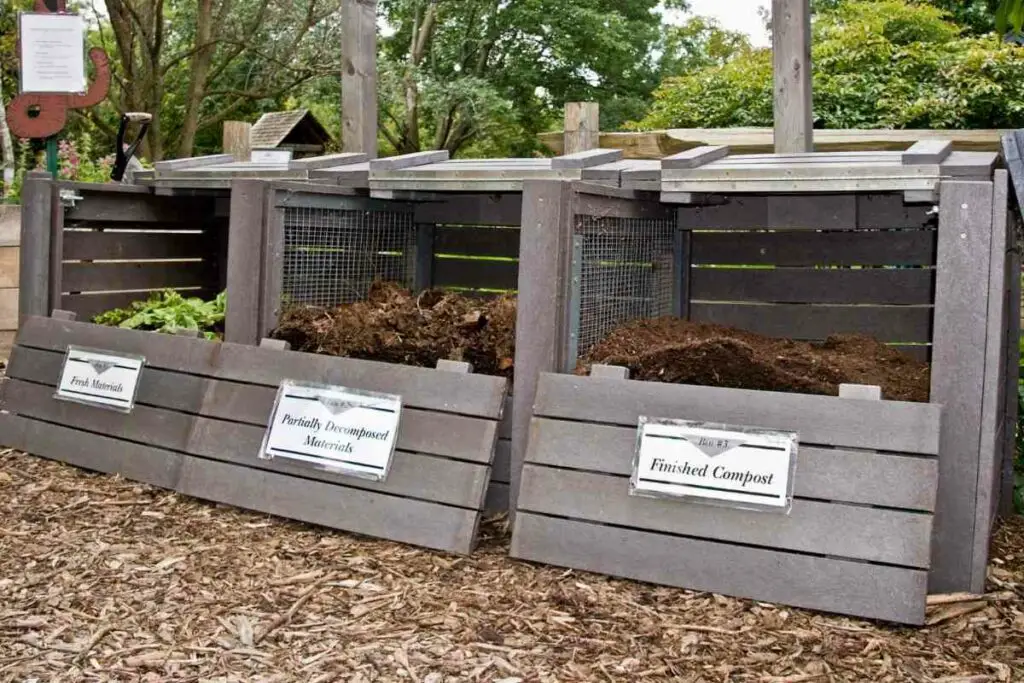
Without enough carbon, the compost will also start to smell bad. This situation occurs when there’s not enough oxygen for the materials to decompose correctly.
Plus, having a good balance of nutrients, water, and temperature will support healthy microorganisms living in the compost.
Keep In Mind – Adding too many coffee grounds can cause harm to the microorganisms. Plus, it can lead to a higher death rate of earthworms as it breaks down when there’s too much.
Lastly, your plants won’t benefit from compost that has too much nitrogen from coffee grounds.
You’ll want to make sure you monitor the compost and add ingredients that can help it.
Coffee grounds in healthy amounts will make for the perfect compost!
How Do I Compost Coffee Grounds?
Now that you know all of the benefits of composting coffee grounds, you’ll want to start!
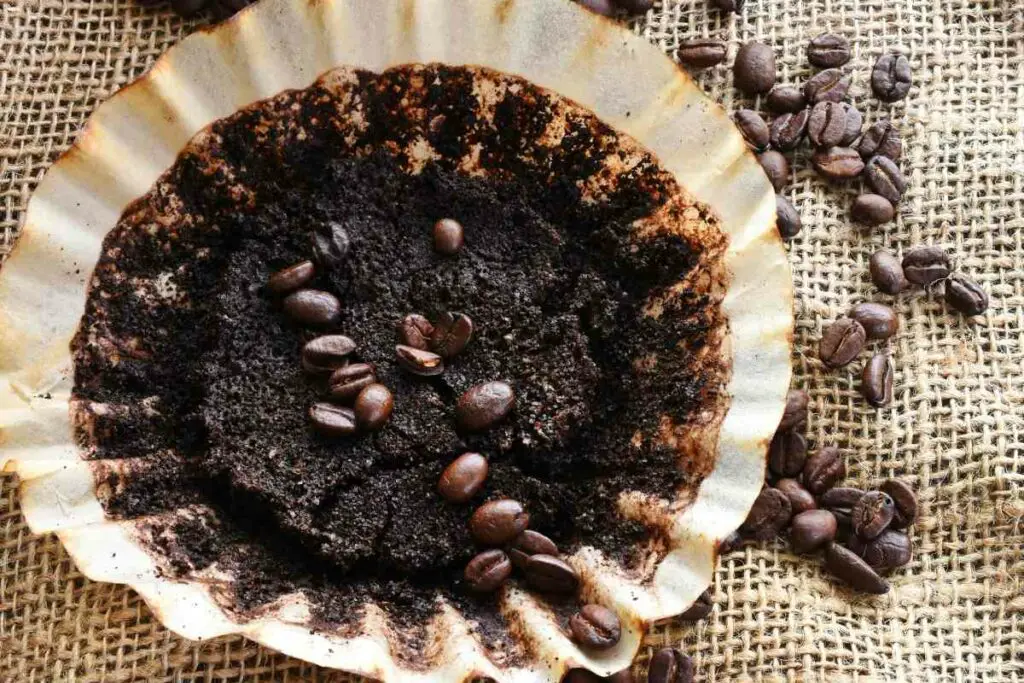
Luckily, it’s a straightforward process, especially if you’re already familiar with running your own composting bin:
- When using coffee grounds, simply mix them with your compost pile. They don’t require any extra steps to break down.
- Then, turn the compost as you normally would. You might want to keep the pile moist to ensure the grounds don’t dry out, but it’s not always necessary.
- You can expect the coffee grounds to take three and six months to finish composting.
- Many gardeners recommend using one part leaves, one part fresh grass clippings, and one part coffee grounds for the best results.
- Then, turn the pile once a week.
In short, you can easily compost your coffee grounds and add them as a fertilizer to your plants!
You’re sure to notice them perking up and growing more rapidly in no time.
In Case You Missed It
- How to Dry Basil Leaves: A Professional Guide
- Is an Avocado a Fruit or Vegetable? Simple Answer and Explanation
- Does Pineapple Have Seeds? Exploring the Anatomy of Pineapples
- Blooming Through Winter: Can I Grow Vegetables Indoors in the Winter?
- What Can You Grow in a Greenhouse All Year Round: A Guide to Year-Round Greenhouse Gardening
- Are Blueberries Blue? Debunking the Myth of Their Color




